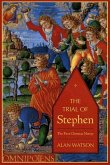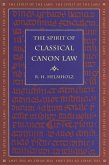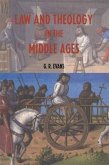In Jesus and the Jews, Alan Watson reveals and substantiates a central yet previously unrecognized source for the composition of the Gospel of John. Strikingly antithetical to John's basic message, this source originated from an anti-Christian tradition promulgated by the Pharisees, the powerful and dogmatic teachers of Jewish law. The aims of this Pharisaic tradition, argues Watson, included discrediting Jesus as the Messiah, minimizing his historical importance, and justifying the Jewish authorities' role in his death. Jesus and the Jews joins three other works by Watson--The Trial of Jesus, Jesus and the Law, and Jesus: A Profile--to examine the early dynamism of western religion through refocused attention on biblical texts and other historical sources.
Hinweis: Dieser Artikel kann nur an eine deutsche Lieferadresse ausgeliefert werden.
Hinweis: Dieser Artikel kann nur an eine deutsche Lieferadresse ausgeliefert werden.







